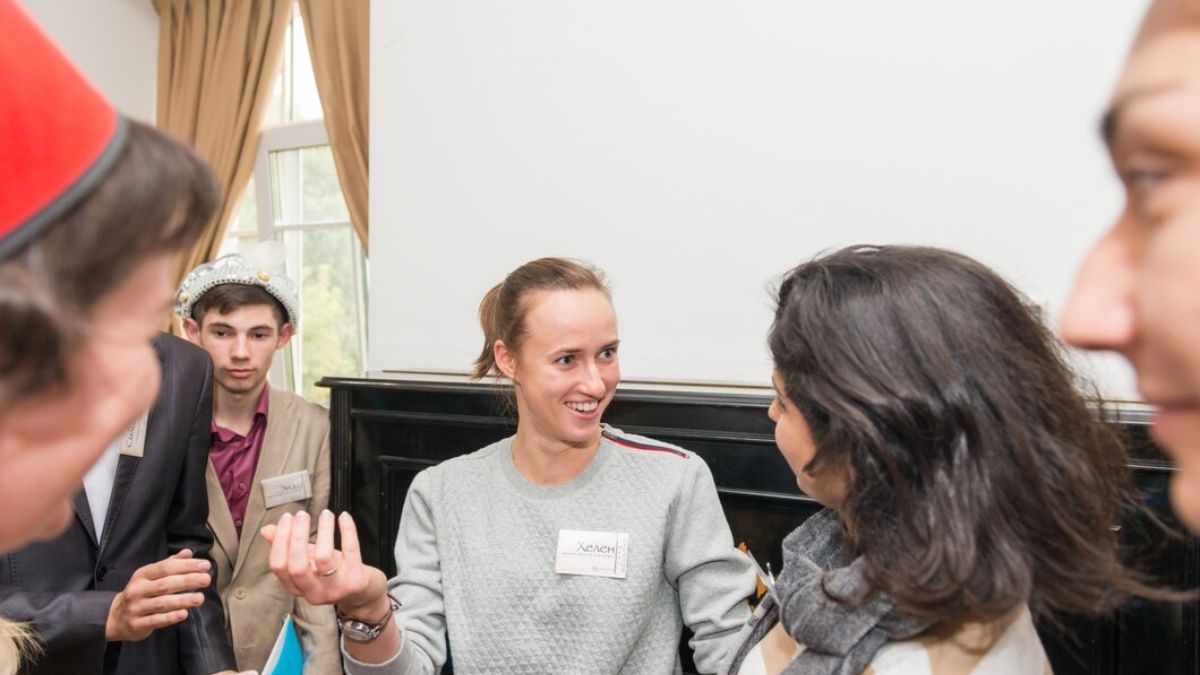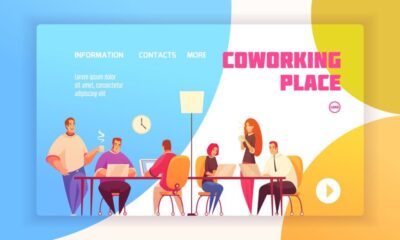LAW
Who is Leah Gettens? Exploring an Inspiring Voice in Advocacy and Community Leadership

Leah Gettens is a name that resonates with determination, advocacy, and community-driven action. While her work spans various fields, Gettens has established herself as a dedicated voice for inclusivity and positive change. This post unpacks her contributions, exploring her impact, and what readers can take away from her inspiring efforts.
A Brief Introduction to Leah Gettens
Leah Gettens is best known for her commitment to creating meaningful change, particularly through advocacy and leadership. Whether addressing important social issues or empowering individuals, Gettens exemplifies the values of resilience, inclusivity, and action.
Her influence extends beyond her immediate network, as her initiatives and leadership have inspired countless people to take responsibility for creating a more equitable and compassionate world.
But what exactly makes Leah Gettens’s work so impactful? By exploring her endeavors, we can uncover valuable lessons for driving societal change and fostering community engagement.
Advocacy Rooted in Inclusivity
At the core of Gettens’s mission is inclusivity. From workplace diversity to community programs, she champions the importance of welcoming voices from all walks of life. Her strategies include:
1. Promoting Accessibility
Gettens has worked tirelessly to break down barriers, ensuring that people from underrepresented groups have access to resources and opportunities. Whether it’s through training programs or policy improvements, her efforts aim to level the playing field.
2. Amplifying Marginalized Voices
Inclusivity doesn’t happen by accident—Gettens actively amplifies the voices of those often overlooked. She partners with organizations and grassroots movements to ensure everyone has a seat at the table.
3. Fostering Community Belonging
Promoting inclusivity is not just a professional goal for Gettens; it’s deeply personal. She cultivates safe spaces that foster belonging, where community members feel seen, valued, and supported.
Building Impactful Leadership
Effective leadership is about more than titles—something Leah Gettens lives by. Her leadership style prioritizes courage, empathy, and results. Here are key lessons from her approach:
Leading by Example
Gettens embodies the values she advocates for, inspiring those around her to follow suit. Her actions consistently align with her messaging, building trust and authenticity in her leadership.
Mentorship and Empowerment
She is passionate about mentoring emerging leaders and empowering them to reach their potential, often working to inspire the next generation to take ownership of societal improvements.
Collaboration over Competition
Collaboration drives much of Gettens’s success in leadership. She builds bridges across institutions, fostering partnerships that extend the reach and impact of her work.
Initiatives and Community Engagement
Leah Gettens doesn’t just talk about change—she takes action. Several initiatives reflect her unwavering commitment to making a difference, including:
- [Describe specific events, programs, or campaigns spearheaded by Leah Gettens here if further context is provided.]
These projects serve as a reminder that impactful change isn’t achieved overnight; it takes persistence, innovative thinking, and the courage to act.
Key Takeaways for Readers
Leah Gettens’s work provides valuable lessons for anyone striving to make a difference:
- Take Small Steps: Social change starts with small, actionable goals. Identify one area where you can contribute today and build from there.
- Engage Your Community: Whether through volunteering or driving conversations, community engagement amplifies efforts and strengthens relationships.
- Be Resilient: Obstacles are inevitable. Channel setbacks into determination, as Gettens has demonstrated throughout her career.
- Stay Inclusive: True progress happens when everyone is involved. Practice inclusivity in your personal and professional life to maximize impact.
How to Get Inspired by Leah Gettens’s Work
Leah Gettens reminds us that passion and action are a powerful combination. By advocating, leading, and creating inclusive spaces, she has left an indelible mark that continues to inspire countless individuals. Whether you’re an aspiring leader, advocate, or community member, take a page out of her book.
Are you ready to step forward and make an impact? Share your thoughts, reflections, or plans for taking action below. Together, we can create the change we want to see.
LAW
Marriage Without a License: Navigating Common Law Marriage

Key Takeaways
- Understand what constitutes a common law marriage and its legal implications.
- Learn the potential benefits and challenges of entering a common-law marriage.
- Explore how different jurisdictions view and regulate common-law marriage.
Partnerships come in many forms, and not all relationships follow the traditional path of a licensed marriage. Sometimes, couples live together and present themselves as married without formally registering their union. This arrangement, often called common law marriage, is recognized in certain jurisdictions under specific conditions. Understanding the legal implications of this arrangement is crucial, as it can affect property rights, financial responsibilities, and inheritance. Knowing the requirements and protections available can help couples make informed decisions about their future while ensuring their rights and obligations are clearly defined.
Common law marriage is a testament to how relationships can evolve outside conventional norms, offering a path that meshes modern autonomy with traditional commitment. This form of union particularly appeals to those who wish to eschew the formalities and expenses of a traditional wedding, opting for a more organic depiction of partnership. Understanding the essence of common-law marriage at https://www.thetxattorneys.com/fort-worth-divorce/common-law-marriage-texas is crucial for couples in states like Texas. While it might seem less complicated at first glance, this relationship structure still involves a mutual commitment akin to conventional marriages, requiring couples to embody the roles and responsibilities of a married pair in their daily lives.
The cornerstone of common law marriage is the mutual agreement by the couple to present themselves as married in every aspect of their communal life. This includes living together for an extended period, merging financial accounts, and making joint decisions that reflect a unified household. Although Texas recognizes such unions, the qualifications can differ significantly between states. Therefore, couples must navigate the diverse legal frameworks that govern these relationships, offering privileges and limitations accompanying this distinctive marital path. Understanding these differences is crucial as it impacts not only the couple’s current legal standing but may also affect their future, especially in relocation or separation scenarios.
The Legal Implications
Common law marriage brings myriad legal implications akin to those experienced in formal marriages. This includes the management of shared assets, debts, and taxation matters, which can place the couple in a complex financial web designed to protect both parties’ rights. This legal arrangement also encompasses inheritance considerations, making estate planning a critical element for couples pursuing this path. In separation, a common law marriage may require a formal divorce procedure, highlighting the need for thorough understanding and preparation for all eventualities tied to this bond. Awareness of these legalities empowers couples to make informed decisions about their partnership, ensuring they can confidently navigate the rewards and challenges of a common-law union.
Pros and Cons
Common law marriage, recognized in some jurisdictions, allows couples to be considered married without a formal ceremony or license, provided they meet specific legal criteria. This arrangement has its advantages and disadvantages, which are essential to consider.
One benefit of common law marriage is the ability to access spousal rights, such as property division, inheritance, and health care decisions, without needing a formal wedding. It may also simplify the relationship process for couples who prefer not to engage in traditional marriage ceremonies.
However, common-law marriage has its drawbacks. Proving the existence of such a union can be complex and may require evidence like shared financial accounts, joint property ownership, or statements from witnesses. Additionally, legal recognition varies by state or country, which can complicate matters if a couple relocates.
Understanding the legal implications is essential for couples considering or currently in a typical law marriage arrangement.
Recognizing Common Law Marriages
Recognizing common law marriages primarily depends on adherence to state-specific laws, which can vary dramatically in formal requirements. While some states recognize these unions, provided there is adequate public acknowledgment and shared financial responsibility, others offer no legal standing whatsoever. For couples considering or existing within a common-law marriage, evaluating state regulations is vital for understanding the legal rights and duties involved. This approach protects the relationship and ensures that both partners fully comprehend their standing in the eyes of the law.
Steps to Solidify a Common Law Marriage
Solidifying a common-law marriage involves demonstrating a committed and lasting relationship that meets legal requirements in jurisdictions recognizing such unions. Start by living together for an extended period, as cohabitation is key. Present yourselves publicly as a married couple by using the same last name, introducing each other as spouses, or celebrating anniversaries. Maintain joint financial accounts, share property ownership, and sign documents, such as leases or mortgages, to establish shared responsibilities. Additionally, create a written agreement outlining mutual commitments. These actions help solidify your relationship and may provide legal protection in recognized areas.
Steps to Legalize the Union
Legalizing a common-law marriage involves formalizing the union to ensure recognition and legal protection. While common law marriages are valid in certain jurisdictions, solidifying the relationship through legal avenues can prevent future disputes. Start by verifying if your state recognizes common-law marriage, as laws vary. Make sure you fulfill the requirements, which include living together, agreeing to get married, and projecting a married image in public.
To legalize the union, consider filing a declaration of informal marriage (if available in your state), which officially documents your relationship. To further demonstrate a partnership, obtain joint financial accounts, co-own property, and share responsibilities like utility bills. Draft a will or legal agreement outlining shared obligations and rights.
For added protection, opt for a formal marriage license and ceremony. This provides definitive legal recognition, simplifies tax filings, and secures inheritance or healthcare rights, ensuring your union is fully recognized under the law.
LAW
Practicalities of Partition: A Guide to Navigating Property Division in Divorce with Fairness, Efficiency, and Real-World Solutions

The Basics of Property Division
Divorce can be challenging for couples, as property division involves distinguishing between marital and separate property. Marital property includes everything acquired during the union, such as real estate, vehicles, and financial accounts. Assets acquired as gifts or inheritances during marriage and those possessed before marriage are considered separate property. This distinction becomes crucial in decisions affecting property division. In states like New Jersey, equitable distribution principles guide this process. Here, the court intends to divide marital property fairly, based on various factors like the duration of the marriage and contributions of each spouse, which may necessitate a settlement agreement red bank nj to address specific nuances.
Community property states in the western U.S. enforce an equal division of marital assets, regardless of individual contributions. Equitable distribution states, like New Jersey, consider various aspects of the marriage, including financial and non-financial contributions, earning potentials, health, and age. Understanding these distinctions is crucial for divorce, as it impacts financial stability.
Financial Planning Post-Divorce
Post-divorce financial planning is crucial due to the economic uncertainty and potential lifestyle and income changes that can arise. It involves a comprehensive assessment of future financial needs, anticipating lifestyle changes, understanding obligations like children’s educational costs, and setting realistic financial goals. Retirement accounts and pensions are crucial for future security and require careful handling due to their complexity. Legal tools such as a Qualified Domestic Relations Order (QDRO), which guarantees compliance and an equitable portion, may be used to distribute these accounts. For those approaching retirement, understanding the terms governing these accounts is essential for securing a financially stable future. Seeking professional assistance can help demystify the process and ensure informed decision-making.
Challenges in Property Division
Emotional attachments during divorce can complicate property division negotiations, making it a personal minefield. These emotional ties can prolong negotiations and increase stress levels. Accurate valuation of shared assets is crucial for property division, as it provides a realistic negotiation framework. Professional appraisals help prevent future disputes by establishing a baseline of worth and neutralizing potential biases. They enable both parties to make informed, balanced negotiation decisions, ultimately promoting a fair resolution. Accurate valuations are essential for businesses, vacation homes, and art collections, as they neutralize potential biases and offer an objective assessment.
Legal Guidance and Support
Legal professionals can help navigate property division and divorce laws, providing guidance and tailoring strategies to protect clients’ interests and ensure legal compliance. They focus on clarity and fairness, facilitating smoother negotiations. Mediation and conflict resolution are key for divorcing couples to reach equitable settlements. A neutral third party facilitates mediation, lessening the litigation stress while promoting communication and cooperative agreements. It promotes resolutions that honor both individuals’ needs, often leading to more satisfactory outcomes than contentious court battles. Mediation supports couples in navigating their divorce with grace and dignity.
Achieving Emotional Balance and Moving Forward
Managing stress during property division requires emotional well-being and effective coping strategies. Mindfulness, regular exercise, and support groups can improve mental health and resilience. Divorce can be a fresh start, but it also signifies personal growth. A positive attitude can transform divorce into an opportunity for personal growth and renewed purpose. Focusing on setting and achieving new goals can help rebuild a fulfilling and financially stable future. Divorce may serve as a springboard for a more promising and exciting future.
LAW
Understanding Nonprofit Liability in Oklahoma

Running a nonprofit organization is a chance to make a difference in the community. But with this opportunity comes responsibility—and risk. Many nonprofit leaders focus on their mission but overlook one critical aspect of their operations: liability.
This blog dives into the intricacies of nonprofit liability laws in Oklahoma and provides actionable insights on how to protect your organization.
Why Nonprofit Liability Matters
Many nonprofit leaders assume their organizations are immune to lawsuits due to their charitable nature. However, this is a common misconception. Like any business, nonprofits can face legal challenges—whether from an injured volunteer, a data breach, or a breach of contract.
If your organization isn’t adequately protected, a single lawsuit can drain financial resources, damage your reputation, or even shut down your operations. Understanding Oklahoma laws and how they apply to nonprofits is the first step to minimizing these risks.
Whether you’re running a small local nonprofit or a large organization serving thousands of people, liability protections should be a part of your operational strategy.
What Is Liability?
Liability refers to the legal responsibility for one’s actions or omissions. For nonprofits, liability can arise in many ways, including the following scenarios:
- An event attendee gets injured on-premises.
- A donor discovers mishandled funds.
- Intellectual property disputes over the use of images, music, or text.
- Volunteer misconduct.
- Employment disputes with staff or contractors.
Navigating these risks is especially tricky in Oklahoma, as liability laws vary depending on the type of nonprofit, the activities involved, and the circumstances.
Liability Protections Under Oklahoma Law
Nonprofits in Oklahoma enjoy some protections under the law, but these protections are not absolute. Here’s a breakdown of key legal protections and their limitations.
1. Oklahoma Charitable Immunity Laws
Oklahoma’s charitable immunity statutes, such as those outlined in the Governmental Tort Claims Act, can offer limited protection to nonprofits. These laws aim to shield charitable organizations from certain lawsuits, particularly when the organization acts in good faith.
However, immunity protections often don’t extend to injuries caused by negligence, misconduct, or violations of federal laws (such as discrimination or harassment laws).
2. Liability for Board Members and Volunteers
Board members and volunteers of Oklahoma nonprofits are often shielded from personal liability for actions they take in good faith on behalf of the organization. Oklahoma law assumes these individuals are acting in the best interest of the nonprofit as long as they are not engaging in criminal or grossly negligent behavior.
Key point: This protection often exists only if the organization has up-to-date governing documents, such as bylaws, and complies with its fiduciary duties (e.g., ensuring funding is responsibly allocated).
3. Employment and Discrimination Laws
Nonprofits may assume that because of their charitable status, they aren’t subject to employment laws—but that’s not the case. Oklahoma nonprofits must comply with federal employment protections under the Americans with Disabilities Act (ADA) and Title VII of the Civil Rights Act.
Failure to follow these laws can leave your organization vulnerable to lawsuits from employees or independent contractors.
4. Contracts and Vendor Liability
Sign contracts carefully. Nonprofits often collaborate with vendors for services such as catering, printing, or operations. If there’s a breach of contract, your organization could be held liable. Ensure contracts include clear terms and conditions to avoid any misunderstandings.
5. Insurance Requirements for Nonprofits
Insurance is a nonprofit’s first line of defense against financial losses caused by lawsuits. Though insurance is not legally mandated for nonprofits in Oklahoma, it is highly advisable. Common types of insurance coverage include the following:
- General Liability Insurance: Covers injuries or property damage.
- Directors and Officers (D&O) Insurance: Protects board members and key leaders from personal financial losses due to lawsuits.
- Professional Liability Insurance: Ensures coverage for claims related to errors or oversights in service delivery.
6. Incorporation and Tax-Exempt Status
Ensuring your nonprofit is properly incorporated under Oklahoma law and obtains its 501(c)(3) status with the IRS is crucial. Incorporation can shield board members and staff from personal liability because the nonprofit becomes a separate legal entity.
Additionally, 501(c)(3) status offers financial benefits like tax exemptions and protections, which can reduce exposure to regulatory fines or financial risks.
Reducing Nonprofit Risks
Now that we’ve covered where liabilities exist under Oklahoma law, let’s focus on proactive steps to protect your nonprofit.
1. Keep Governing Documents Up-to-Date
Ensure your nonprofit’s bylaws and policies are current and compliant with both federal and Oklahoma laws. Regularly review these documents, especially following significant organizational changes, to confirm accuracy. Consult with an attorney if needed to strengthen language about liability protection for board members and volunteers.
2. Implement Training for Staff and Volunteers
Everyone involved in your nonprofit—whether paid staff, unpaid interns, or volunteers—should receive training on compliance, workplace conduct, and safety standards. This reduces the likelihood of accidents or legal infractions.
3. Create Clear Contracts
Draft professional contracts for every vendor or collaborator. Include terms that safeguard your organization if a service isn’t delivered as expected or if a dispute arises.
4. Develop a Crisis Plan
Sometimes, legal issues are unavoidable regardless of preparation. Establish a clear crisis communication plan to respond to lawsuits, injuries, or PR crises that arise. Assign clear responsibilities and prepare statements to maintain trust with donors and the public.
5. Work with a Legal Expert
Consult with an attorney familiar with Oklahoma’s nonprofit laws to identify potential liabilities and establish proper safeguards. A small investment in legal support now could save your organization thousands of dollars in the future.
Joining a Strong Network
Oklahoma nonprofits thrive when they share resources, knowledge, and best practices. Joining local support networks like the Oklahoma Center for Nonprofits can provide access to discounted services (like insurance) and legal assistance to better manage liability risks.
Your Next Step Toward Protection
Operating a nonprofit is incredibly rewarding, but it comes with risks that must be addressed head-on. By understanding liability laws in Oklahoma and taking proactive measures, your nonprofit will be equipped to handle challenges while focusing on your mission.
Want to learn more about nonprofit liability and risk management? Connect with a legal advisor to review your current practices and ensure your organization is protected. Don’t wait until it’s too late—legal peace of mind starts today.
-

 BLOG11 months ago
BLOG11 months agoWho Is the Father of CSK? A Deep-Dive Into Chennai Super Kings’ Dominance in Cricket
-

 EDUCATION11 months ago
EDUCATION11 months agoHighlights From the September 18 Board of Education Meeting
-

 PLATFORM10 months ago
PLATFORM10 months agoThe Ultimate Guide to MyDesi.Net – Where Culture Meets Connection
-

 EDUCATION11 months ago
EDUCATION11 months agoA Look Back at the Board of Education City of Linden 2020 and Manganello’s Impact
-

 HOME IMPROVEMENT11 months ago
HOME IMPROVEMENT11 months agoHome Depot Tool Rental, Everything You Need to Know
-

 BLOG10 months ago
BLOG10 months agoUnderstanding Missav: Everything You Need to Know
-

 TECHNOLOGY11 months ago
TECHNOLOGY11 months agoUnderstanding Mega-Personal.Net Technology and Its Applications
-

 TRAVEL11 months ago
TRAVEL11 months agoTravel Smarter with TravelsForNow, Your Guide to Exploring the World
